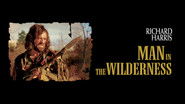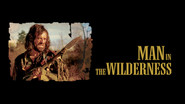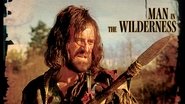clanciai
The remake of this year called "Revenant" has suddenly brought this original up to date, and a comparison is inevitable. Both have outstanding credits, "Revenant" above all for its amazing panoramic landscape cinematography, but this original weighs heavier. The acting is so much better, it is more humanly convincing, and although it's the same story it's a totally different story with a much more satisfactory and actually surprising end. Already from the start you are informed of all the facts of this adventurous expedition and its circumstances, and how vital it was for the men to get down to Missouri in time before winter - that race with time is the real thriller of the tale, which is totally absent from "Revenant", where instead you are buried in the tribulations of the deserted man, who is being constantly overloaded with new trials and hardships, as if the first was not enough, which is totally unnecessary exaggerations constructed only for effect. Here the narrative is more down to earth with moving details stressing the increasing humanity of the sufferer, such as his witnessing an Indian childbirth and his helping a rabbit with a broken leg - this is all more convincing and credible as a Robinsonade from real life, while "Revenant" in comparison is just mostly exaggerations. Here there is no nasty crook with intentional foul play, and an interesting spice to the human problem complex of the story is how the men actually suffer from having left Zach behind, even hallucinating about him for an extra bad conscience, while Zach himself is brought to maturity and insight by his memories in flashbacks. No bloody cruelty here, only the natural force of circumstances, which makes this film credibly positive in contrast to the remake. "Revenant" also has almost no music, only some moody chords now and then, while here you can enjoy a full and masterful score (by Johnny Harris - never saw his name before) which is perfectly suited to this grand epic human drama of survival and redemption, making a full vote well justified.
James
This is by far one of the worst movies I have ever seen. This movie is 15 minutes of plot crammed into 105 minutes. My Granny was slow, but she was 97 years old.The entire movie depicts Richard Harris being done wrong by Houston, and Richard's quest to hunt Houston down.It is really quite ludicrous watching the evildoers dragging a boat on wheels up and down mountains for over an hour.If I were a captured enemy spy, and my captors wanted me to tell everything I knew or didn't know, all they would have to do is sit me down and make me watch this mess for about 20 minutes.
FightingWesterner
Richard Harris is horribly mauled by a grizzly bear and left to die in the primeval forest of 1820's America, by trapping expedition captain John Huston. The injured Harris is forced to go to extraordinary lengths in order to survive and catch up with the rest of his party.A very offbeat, handsomely produced outdoor adventure, Man In The Wilderness is a story that's told primarily in pictures, with very minimal dialog. This moody, sometimes cerebral film might not be for everyone, though others will find it quite satisfying.Richard Harris delivers a great performance, despite the fact that the script only allows him to speak five times during the movie, three of which were near the end. He's forced to convey emotions mainly through body and facial expression.Some favorite scenes are when the trappers are pinned down by the weather and begin to imagine a vengeful Harris, coming out of the wilderness to get them, and of course the fascinating climax and finale.The film's basic premise was borrowed four years later, in the bad drive-in movie Apache Blood. That film is not recommended, whereas this would make a pretty good double-bill with A Man Called Horse or Jeremiah Johnson.
chaos-rampant
Far from the arid deserts and dry arroyos of Arizona and Texas, the goldfields of California and the rowdy cattle towns of Kansas and Missouri, before the Mexican or the Civil War, indeed before the frontier myths that shaped America's collective consciousness into a coherent nation were even tall tales told around a fire at night or spectacles to be toured around the country by wild west shows, the war for another kind of America was being fought. Loosely based on the 1818-20 Missouri Expedition, director Richard Sarafian, the very same year he carved on the face of cinema the name Kowalski and the beautiful sight of a Dodge Challenger R/T tearing through empty stretches of asphalt with the indomitable VANISHING POINT, created another kind of western.A stark gritty survival story that veers between the vividly realistic and the dreamlike, between a plot and no plot, between the story of a man coming to terms with his past in a journey of self-discovery revenge and redemption and the Sissyphian story of a ragged band of half-crazed mountain men towing against all hope a large boat borne on wheels through the mudfields of the Oregon Territory, if anything, MAN IN THE WILDERNESS cannot be accused for not trying to succeed on its own terms. At the beginning of the film the expedition's scout, Zachary Bass (Richard Harris), is mauled half to death by a bear. The leader of the party, Captain Henry (John Huston) leaves him to die and pushes on towards the Missouri River, pressed on by the bands of Indians that roam the territory.From this dichotomy the story moves in two different directions. On one hand we see Zachary Bass make a terrible painful recovery from near-death, having to fight wild dogs for the raw meat of a dead buffalo, building fires against the coming cold with twigs and branches, laying traps for food, traversing the rocky terrain in pursuit of the men who abandonded him, witnessing on his way scenes both of random violence and unexpected joy, his anguished return from the dead interspersed with flashbacks to his childhood. On the other hand Captain Henry, the stark realist, the grizzly pioneer dressed in his doublebreasted jacket and high-top hat, the monomaniac navigator of uncharted lands, standing rigid and steadfast on the deck of his boat like some other Captain Ahab, toiling away in the mad voyage he elected for himself, not even knowing yet he's carrying his boat to a dry riverbed, being haunted by guilt and remorse for the man he left behind.If the imagery of a boat filled with poetic metaphor towed through a stark hostile landscape reminds us of something Werner Herzog once did, it must be said that Sarafian was there years before either AGUIRRE or FITZCARRALDO and one year before Sydney Pollack would tackle similar motifs with the frontier western of JEREMIAH JOHNSON. The themes that resound through the movie, men set against a savage land that bears them false witness, the confidence of the director to avoid explanatory narrations and rely on minimal dialogue, the beautiful open vistas (the movie was shot in Andalucia, Spain - not far from where Sergio Leone made filmic history), the iconic monomaniac antagonist played by the great John Huston (not quite the despicable Noah Cross he played for Polanski's CHINATOWN three years later, more human this time, with the capacity for surprise and defeat), the violent final battle that has enough mud and grime to make the closing battle in SEVEN SAMURAI look polished - everything comes together to paint MAN IN THE WILDERNESS as another sadly overlooked gem of American cinema. My only complaint, apart perhaps for the lack of a better score, is that Sarafian didn't probe 'enough' the depths of his story and the world it takes place in. Given the characters, setting and story, there's an even better movie lurking somewhere in there...





